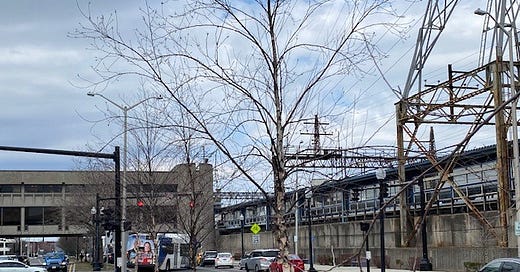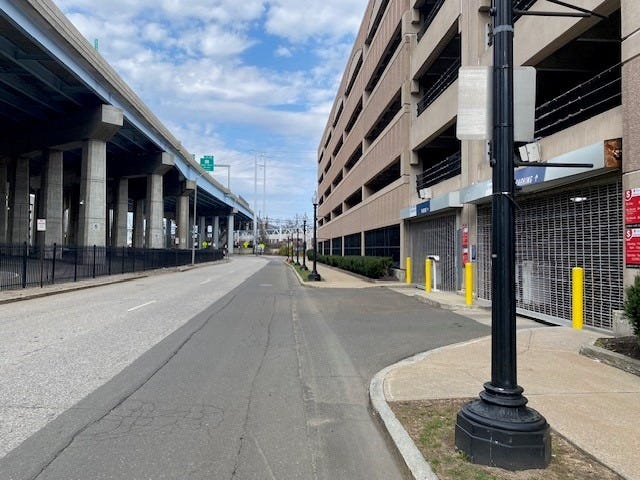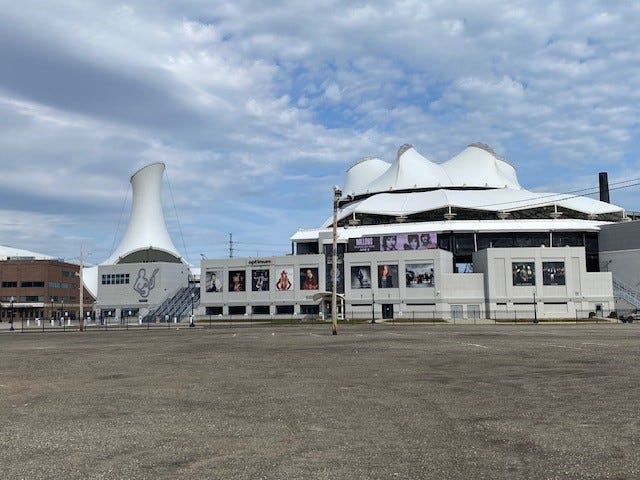Imagine this: you and your friends have tickets to the ultimate throwback concert—Creed, 311, and O.A.R.—at the Hartford Healthcare Amphitheater in Bridgeport. You meet up at your house, snap some photos, and walk five minutes to your local Metro-North station. Aboard the train you chit-chat while gliding stress-free to your destination. No traffic, no missed turns, no endless circling to find a parking spot. After the curtains come down, you stroll back to the station, singing as you say your goodbyes along the route home, buzzing with excitement right up to the moment your head hits the pillow.
This kind of convenient, safe, and affordable travel should be the norm, but Connecticut’s rail network remains underutilized. While Governor Lamont and other state leaders have supported rail expansion, ridership remains low, leaving trains empty and the system operating at a loss. The issue isn’t just due to a lack of existing infrastructure, although that’s part of it, it’s also about public awareness and perception. Most Connecticut travellers assume that driving is the only means of reaching any destination, unaware that public transit can be cheaper, safer, better for the environment, and beneficial for their mental and physical health.
To facilitate greater rail ridership, Connecticut should subsidize Metro-North rides to and from concerts at the Hartford Healthcare Amphitheater. Riders would simply show their concert ticket to conductors within an hour of the event’s start or conclusion to qualify for a free ride on Metro-North’s high-quality rolling stock. A similar program already works in Phoenix, where Valley Metro Light Rail provides free rides to the PHX Arena for concerts and the Phoenix Rising soccer stadium. Connecticut should adopt this exact model to boost awareness of public transit, reduce post-concert traffic, and limit the number of impaired drivers on the road.
Downtown Bridgeport is the ideal place to implement this transit-oriented policy. The amphitheater was built to serve as a cultural hub, and pedestrian infrastructure connects the train station directly to the venue. Despite this, most amphitheater attendees still drive. Incentivizing train travel as a cost-efficient alternative to driving would not only solve traffic issues and streamline concert-goers' experience but also benefit local businesses, as pedestrians are more likely than motorists to stop at restaurants and shops on their way to and from events. The boost to Bridgeport’s local economy from increased foot traffic would be substantial, accelerating the city’s renewal.
If successful, the initiative could expand to other transit-adjacent venues like College Street Music Hall in New Haven, Fairfield Theater Company, or Waterbury’s Palace Theater. Critics may argue that free train rides are a “handout,” but once people experience the convenience and safety of taking the train, they’ll be more inclined to use it again—even if they have to pay. This increase in ridership would create more revenue, better service, and increased demand for rail expansion - which in turn leads to safer streets, cleaner skies, and smaller road maintenance budgets.
Creed frontman Scott Stapp once asked, “Can you take me higher?” The state of Connecticut can; by offering free train rides to cultural events at Hartford Healthcare Amphitheater, we can elevate our cultural offerings, grow local economies, and raise residents’ quality of life. When we connect the Nutmeg State by rail, there’s nowhere to go but up.
Thanks to our sponsors and supporting subscribers!
In April, we’ll have news about sponsorship opportunities and meetups in the Nutmeg State. Pre-COVID sponsors of the Train Campaign also deserve acknowledgement: Interprint, Number 10, Michael Mullin, Adam Lippes, Mahaiwe Performing Arts, New Milford Riverfront, and T4Mass.
All content in Train Time is shared under a Creative Commons License (CC BY-NC-ND):
Attribution (BY) – Always credit the author and Train Time as the original creator with a tag or link to https://traintime.substack.com.
Non-Commercial (NC) – Content cannot be used for commercial purposes.
No Derivatives (ND) – Content may not be modified, adapted, or repurposed.









This article has taken my opinions on public transit and train travel in CT so much higher. I'll certainly be riding the train to my next concert!